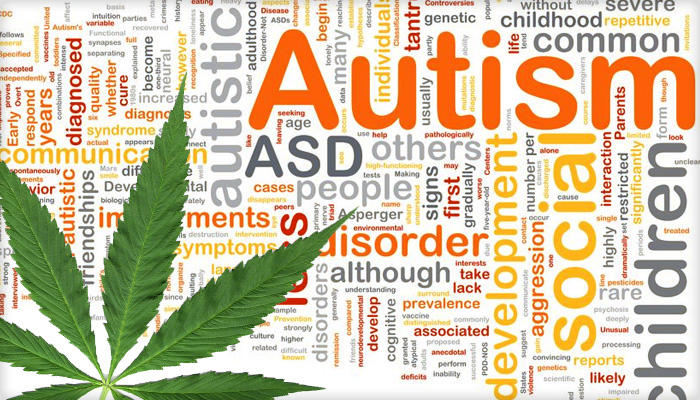Cannabis study suggests CBD-rich cannabis may relieve multiple autism symptoms
A recently published cannabis study featured in the journal Frontiers in Neurology demonstrates that cannabis’ non-psychotropic compound CBD (cannabidiol) may have a positive effect on individuals with autism. The study was conducted by a group of Brazilian researchers, of whom claim that “CBD-enriched” cannabis oil provided patients with neurological improvements.
In total, 18 autistic patients were administered with a CBD-dominant cannabis sativa extract; the extract had a CBD to THC ratio of 75:1. Extending over nine months, the study saw each patient receive a 4.6 milligram dose of CBD for each kilogram of their body weight. No more than 0.06 mg of the psychotropic cannabinoid THC (tetrahydrocannabinol) was administered to each autistic patient.
Within the first month, three patients experienced what the researchers described as “adverse effects” and so, discontinued treatment. Of the 15 that continued to partake in the cannabis study, 14 demonstrated “some level of improvement” in not just one type of autism symptoms, but four.
Majority of patients experienced symptom improvement after using cannabis for autism
“Improvement equal to or above 30 percent” in one of the four categories was reported by nine patients. However, these patients had autism only, whereas the remaining participating study subjects endured the symptoms of both epilepsy and autism; both disorders often occur together.
Four patients experienced an improvement in four categories, such as sleep patterns, concentration, social interaction and function.
Before the study on cannabis for autism was carried out, 10 out of 15 patients used alternative types of medication. After quitting their previously prescribed meds – which did not contain cannabis – all but one of the patients experienced an improvement in their autism symptoms.
“The results reported here are very promising and indicate that CBD-enriched [cannabis] may ameliorate multiple [autism spectrum disorder] symptoms even in non-epileptic patients, with substantial increase in life quality for both … patients and caretakers,” wrote the researchers.
Growing body of evidence points to the potential of using cannabis for autism
This study on cannabis for autism is not the only research pointing to the green plant’s benefits when used as a treatment in controlled settings.
For example, a study published in the journal Frontiers in Pharmacology back in January revealed how oral doses of CBD effectively reduced autism symptoms in 68.4 percent of 38 children who participated. Plus, in December 2018, Autism Speaks hosted its first ever conference on cannabis for autism.
Not everyone is won over on the idea of using cannabis to treat autism, however.
“To date, there is limited research, and no evidence, on the potential short-term, long-term or neurodevelopmental risks and benefits of medical [cannabis] or its related compounds in ASD,” reads an excerpt from the official Autism Science Foundation website.
Moreover, cannabis is still illegal at the federal level. What this means is that restrictions on research remain, not to mention restrictions on cultivation and production in states that haven’t yet enacted legal cannabis laws.
Epidiolex – the first pharmaceutical drug to gain approval from the Food and Drug Administration (FDA) – offers epileptic patients a natural method of treatment. Although last year’s approval of this medication from GW Pharmaceuticals provides promise for people with epilepsy, Epidiolex has not gained approval for autism.
Nonetheless, hope prevails, since epileptic seizures are often associated with similar “etiological mechanisms” that may contribute to non-epileptic autism. With this in mind, it’s only a matter of time before major drugs companies start badgering the FDA for approval to distribute cannabis-containing epilepsy drugs – like Epidiolex – that are catered towards autism patients, too.








